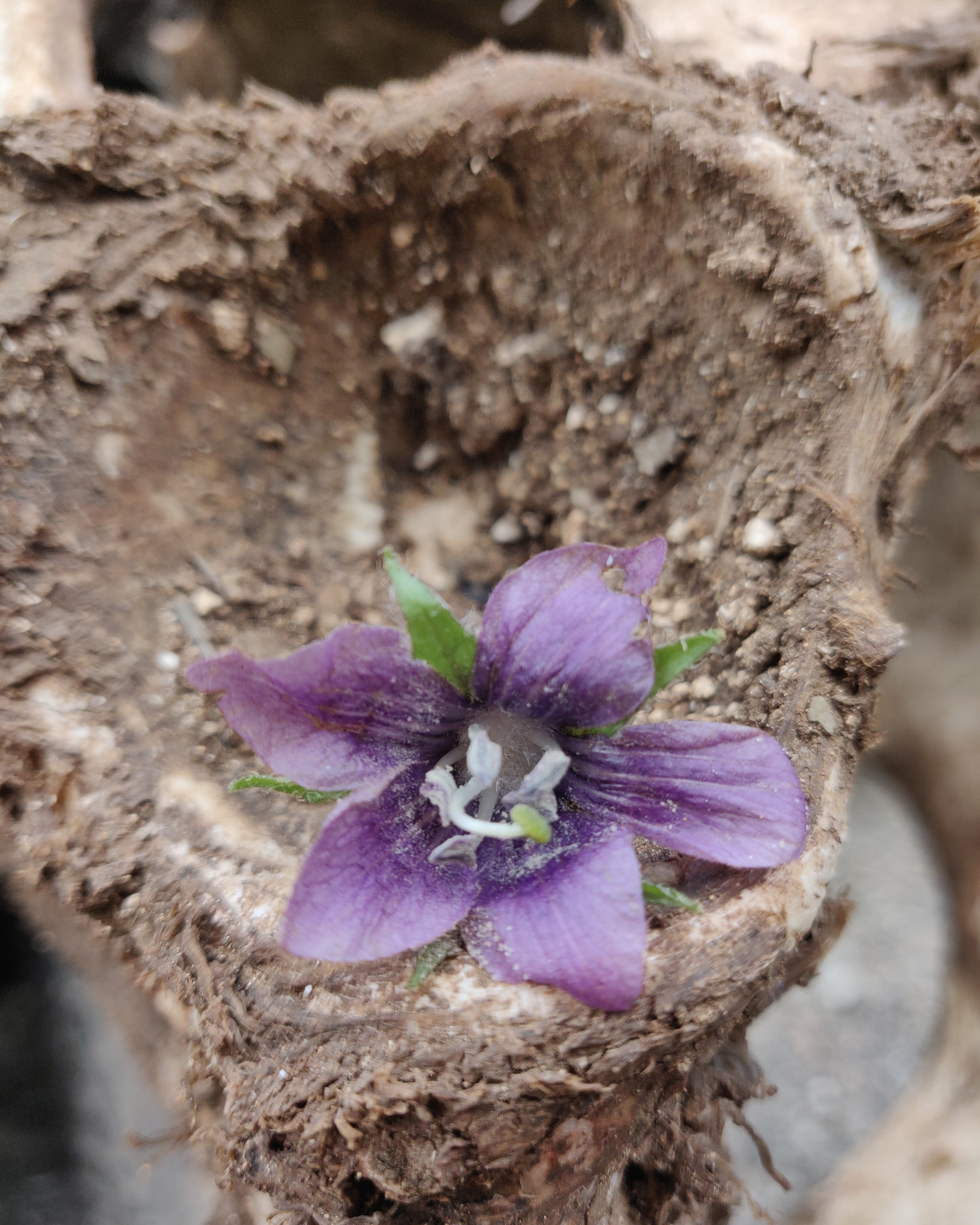
On esoteric herbalism and the path of poison:
Posted by entheogenic paths on
The interests of this stream of magic lie in folk herbalism, folklore, shamanism, toxicology and phytochemistry.
.
Self-poisoning for the attainment of mystical knowledge, ecstasy and/or congress with the spirits, are actions which some of us call the way of poison.
.
This concept separates the mystical effort of intercession and transformation (transmutation) from the typical motivations of hedonism and criminal activity.
The way of poison is an art of sharp diagnoses and witty discriminations, of observation and caution.
Gnosis in the path of poison arises not from the initial interest of its poison, nor from its daily somatic effects, but from its transmutation through the sorcerer's craft, to serve the path of seekers.
Or as one Chinese sage said
"its not the spoon that bends, its you"
Poison in old medicine was a simple concept in the eyes of Paracelsus (1541-1493), a well-known Swiss alchemist, physician and astrologer of his time.
Even in our time, depending on who you ask.
Paracelsus was a student of Aristotle and is considered one of the founders of modern medicine, mainly because he was the first to turn his back on the old rational medicine that was not based on empirical experiments.
SOLA DOSIS FACIT VENENUM
- Only the dose makes the poison.
By understanding which doses are useless, which ones are beneficial and safe to use, and which ones are too strong, you can develop a deeper understanding of how to safely use the witches' herbs.
.
Paracelsus even formulated the principle of "healing like with like"
'Similia Similibus Curantor'
.
In esoteric practice, the study of the way of plants has immediate application in several established currents.
Among the most prominent of these are traditions of folk medicine or indigenous practices that outsiders call shamanism.
In the esoteric lineage of Europe, the green threads of magical botany occur in the currents of alchemy and natural renaissance witchcraft.
These belief systems are usually part of broader witchcraft frameworks that include many other non-plant practices, such as planetary work, dreaming, ritual and worship, and of course the corpus of the Key of Solomon and all its derivatives.
∆ As a belief system in its own right, Esoteric Herbalism can be the only brain in magical study and practice, focusing entirely on plants. In such cases, the older examples of these teachings do not define themselves as esoteric herbalism, but learn to become pure herbalism.
=======================
- paths - the plant gardens - the seeker - the plants themselves.
This formula represents a metaphysical model of a process.
A means by which the sublime power of plants can be turned to in a practical way.
The action is dynamic and continuous, just like the processes of nature, which must be understood in order to unify its variables. In doing so, we can physically identify and honor the axioms of natural magic in our herb garden.
The knowledge of the path involves how it is expressed in movement. And also how it functions as a set of initial principles.
If we take into account the monuments in the landscape, the meaning of the path becomes clear:
You can reach the mountain in many ways that offer different views.
A mountain is singular, but the human experience depends on the road leading there.
If paths indicate essential philosophical paths,
The plant gardens in turn indicate areas of knowledge to which the paths lead.
Many of them overlap or share arcana.
If so, the herb gardens are definite concentrations of power.
The paths are the routes leading there.
This way you can reach each knowledge garden through one or more paths.
Similarly, one track may contain multiple gardens.
However, since they all assume a spiritual and philosophical journey, the path may contort and cause the seeker to search endlessly without reaching the destination.
The path may turn, deviate or, of course, move with one force to another main path or to the thorn bushes on the sides of the road.
So don't forget the words of Paracelsus
SOLA DOSIS FACIT VENENUM!
.
edited from texts by:
Daniel A. schulke and wikipedia













































